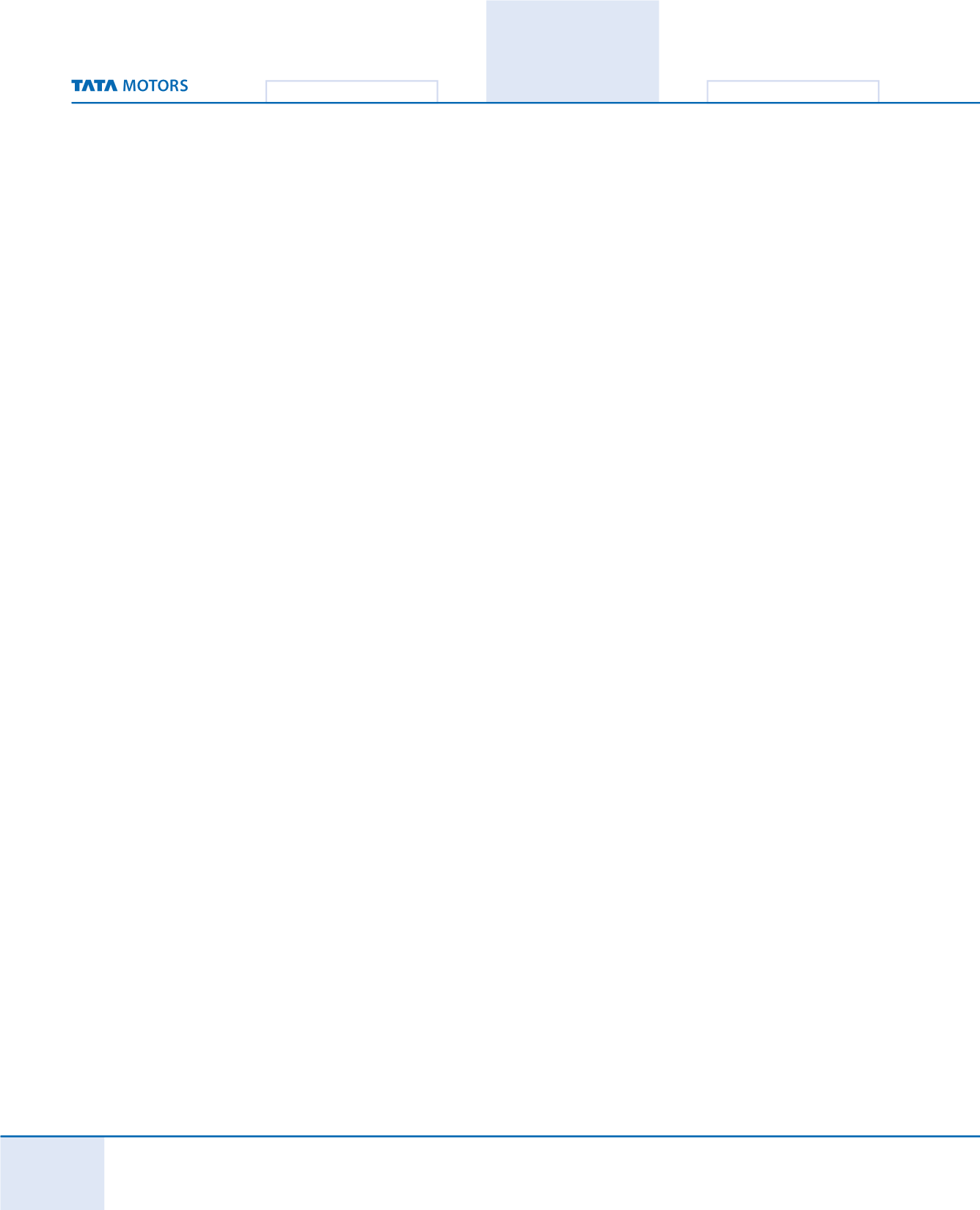
Statutory Reports
Corporate Overview
69th Annual Report 2013-14
94
Financial Statements
Underperformance of distribution channels and supply chains:
The Company products are sold and serviced through a network of
authorized dealers and service centers across the domestic market,
and a network of distributors and local dealers in international
markets. The Company monitors the performance of its dealers
and distributors and provides them with support to enable them
to perform to the expectations. Any under-performance by the
dealers or distributors could adversely affect the Company’s sales
and results of operations.
The Company relies on third parties to supply rawmaterials, parts and
components used in the manufacture of products. Furthermore, for
some of these parts and components, the Company is dependent
on a single source. The Company’s ability to procure supplies in a
cost effective and timely manner is subject to various factors, some
of which are not within its control. While the Company manages
its supply chain as part of the vendor management process, any
significant problems with supply chain in the future could affect the
results of operations. Natural disasters and man-made accidents,
adverse economic conditions, decline in automobile demand, lack
of access to sufficient financing arrangements among others could
have a negative financial impact on the Company’s suppliers and
distributors, in turn impairing timely availability of components,
or increases in costs of components Similarly, impairments to the
financial condition of our distributors may adversely impact our
performance in some markets. In addition, if one or more of the
other global automotive manufacturers were to become insolvent,
this would have an adverse effect on the supply chains and may
further affect the Company’s results of operations in an adverse
manner.
With respect to JLR operations, as part of a separation agreement
from Ford, the Company has entered into supply agreements
with Ford and certain other third parties for critical components.
Any disruption of such transitional services could have a material
adverse impact on the operations and financial condition.
Changes in tax, tariff or fiscal policies and regulations:
Imposition of any additional taxes and levies designed to limit
the use of automobiles could adversely affect the demand for
the Company‘s vehicles and the results of operations. Changes in
corporate and other taxation policies as well as changes in export
and other incentives given by the various Governments could
also adversely affect the results of operations. For example, the
Company benefits from excise duty exemptions for manufacturing
facilities in the State of Uttarakhand and other incentives in certain
states of India either through subsidies or loans from such states
where it has manufacturing operations. The Government of India
had proposed a comprehensive national goods and services tax, or
GST, regime that will combine taxes and levies by the central and
state Governments into one unified rate structure. While both the
Government of India and other state Governments of India have
publicly announced that all committed incentives will be protected
following the implementation of the GST, given the limited
availability of information in the public domain concerning the
GST the Company is unable to provide any assurance as to this and
any of the aspect of tax regime following implementation of the
GST. The implementation of this rationalized tax structure might be
affected by any disagreement between certain state Governments,
which could create uncertainty. The timelines of the proposed
transition is uncertain at this point of time.
The Direct Tax Code Bill 2010, or DTC, proposes to replace the
existing Income Tax Act, 1961 and other direct tax laws, with a view
to simplify and rationalize the tax provisions into one unified code.
The various proposals included in DTC bill are subject to review by
Indian parliament and as such impact if any, is not quantifiable at
this stage.
Political instability, wars, terrorism, multinational conflicts,
natural disasters, fuel shortages / prices, epidemics, labour
strikes:
The Company’s products are exported to a number
of geographical markets and the Company plans to expand
international operations further in the future. Consequently, the
Company is subject to various risks associated with conducting
the business outside the domestic market and the operations may
be subject to political instability in those markets, wars, terrorism,
regional and / or multinational conflicts, natural disasters, fuel
shortages, epidemics and labour strikes. In addition, conducting
business internationally, especially in emerging markets, exposes
the Company to additional risks, including adverse changes
in economic and Government policies, unpredictable shifts in
regulation, inconsistent application of existing laws and regulations,
unclear regulatory and taxation systems and divergent commercial
and employment practices and procedures. Any significant or


